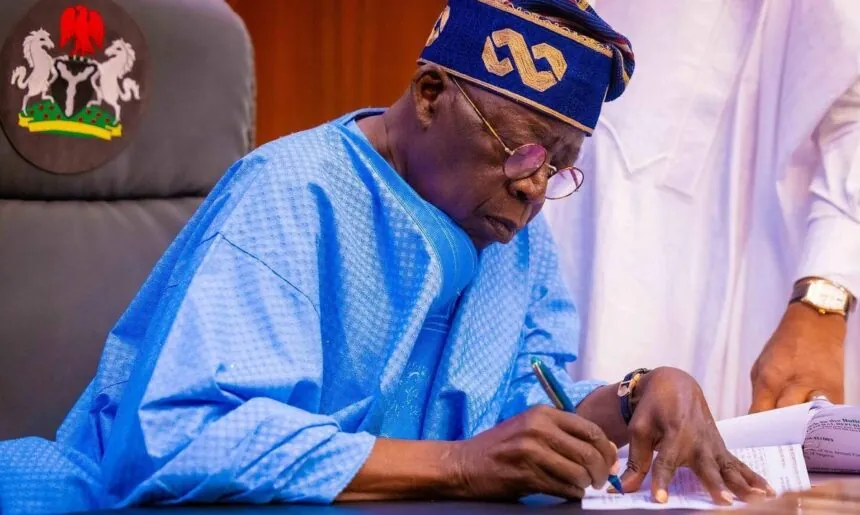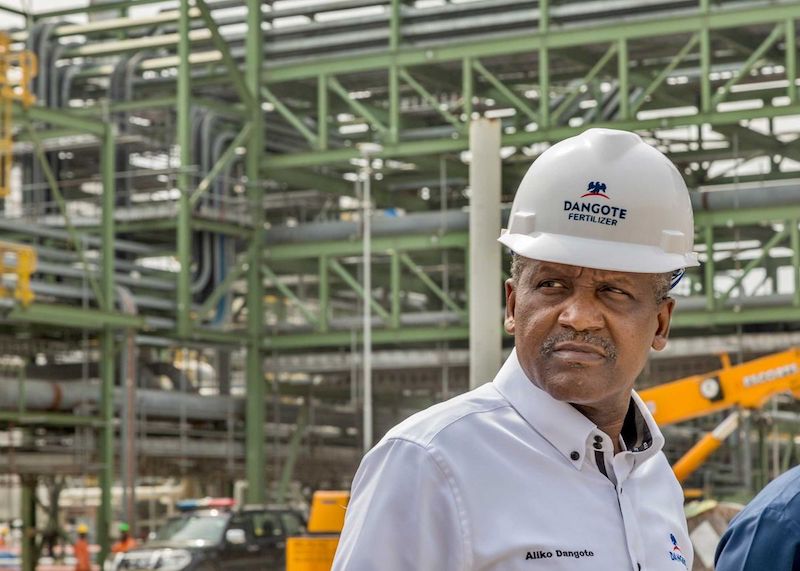The President of Dangote Group, Aliko Dangote, revealed that Nigerians currently pay just 55% of what citizens in other West African countries pay for Premium Motor Spirit (petrol), thanks to local refining.
Speaking during a high-level visit by the President of the ECOWAS Commission, Dr. Omar Touray, and his delegation to the Dangote Refinery, Dangote emphasized the impact of local production on fuel pricing. He explained that the refinery sells petrol at between N815 and N820 per litre—far below the regional average of around \$1 per litre (approximately N1,600).
“Our refinery made this price reduction possible,” Dangote said. “Many Nigerians don’t realise they’re only paying a little over half of what others in the region are paying.”
Dangote highlighted how the refinery has also slashed diesel prices. “Last year, when we began producing diesel, we dropped the price from N1,700 to N1,100 instantly. The price has since fallen even further,” he stated. “This reduction has boosted mining, supported industries, and provided critical relief to the agricultural sector.”
He underscored the broader impact of local refining on Nigeria’s economy, noting that it reduces both production and energy costs across multiple sectors. He argued that Africa must prioritize intra-continental trade and industrialization.
“As long as we keep importing what we can produce, we’ll remain underdeveloped,” Dangote said. “This refinery proves we can build at scale and to global standards.”
Dangote dismissed concerns that the facility couldn’t meet Nigeria’s fuel demand. “Some claimed we can’t even meet local needs, let alone export. But ECOWAS officials came here and saw the reality. We’re fully equipped to supply Nigeria and the West African region.”
He added that the refinery has more ambitious plans in progress. “We’ve not yet announced our next initiative, but Nigerians should know we built this refinery for them—they will enjoy its full benefits.”
Dr. Touray, visibly impressed by the facility, called it a beacon of hope for Africa’s future. “What I’ve seen today fills me with hope. Anyone who doubts Africa’s potential should come here,” he said. “The scale, quality, and vision are remarkable. Alhaji Dangote’s trust in Africa is clear, and we must all support such vision.”
Touray praised the refinery for producing Euro V standard fuel, which meets ECOWAS’ 50ppm sulphur limit—something most imported fuels fail to achieve. He emphasized that imported substandard fuels pose serious environmental and health risks to the region.
“We must stop importing low-grade fuel when companies like Dangote can exceed our standards. The private sector must drive ECOWAS industrialisation,” Touray urged.
He called for deeper collaboration between governments and private industry, stressing that policy must reflect on-the-ground realities. “We need to hear directly from industrialists like Dangote,” he said. “We cannot keep making decisions on their behalf from a distance.”
Touray urged the region to adopt an industrial strategy that tackles youth unemployment, poverty, and insecurity. He pledged ECOWAS’ full support in helping regional giants like Dangote Group access broader markets.
“We’ll do everything possible to open ECOWAS—and Africa—to Dangote’s products,” he added.
The ECOWAS delegation included Commissioner for Infrastructure, Energy and Digitalisation, Sediko Douka; Commissioner of Internal Services, Prof. Nazifi Darma; Director of Private Sector/SME, Dr. Tony Elumelu; and Dr. Touray’s Chief of Staff, Abdou Kolley, among others.




